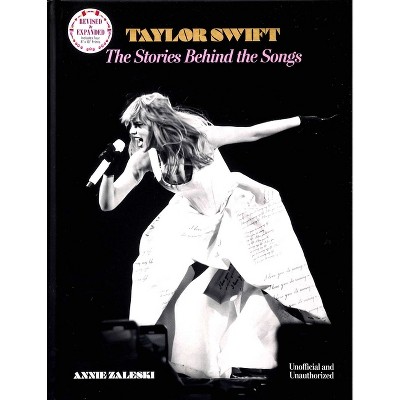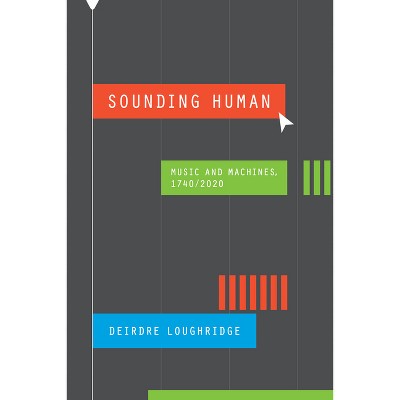Sponsored

Format Friction - (New Material Histories of Music) by Gavin Williams (Hardcover)
$115.00
In Stock
Eligible for registries and wish lists
Sponsored
About this item
Highlights
- The first book to consider the shellac disc as a global format.
- About the Author: Gavin Williams is a lecturer in music at King's College London.
- 208 Pages
- Music, History & Criticism
- Series Name: New Material Histories of Music
Description
About the Book
"With the rise of the gramophone circa 1900, the shellac disc mushroomed into the dominant sound format of the first half of the twentieth century. Format Friction brings together a set of local encounters with the shellac disc, beginning with its preconditions in South Asian knowledge and labor as well as early colonial expeditions to capture sounds, to offer a global portrait of this format. Spun at 78 revolutions per minute, the shellac disc had become an industrial standard, even while the gramophone itself remained a novelty. The very basis of this early sound reproduction technology was friction, an elemental materiality of sound shaped through cultural practice. Yet the recording of sounds was only one element in the making of this global format. Using friction as a lens, Gavin Williams reveals the environments plundered, the materials seized, the ears entangled. Bringing together material, political, and music history, Format Friction decenters the story of a beloved medium and so too explores new ways of understanding listening in technological culture more broadly"--Book Synopsis
The first book to consider the shellac disc as a global format. With the rise of the gramophone around 1900, the shellac disc traveled the world and eventually became the dominant sound format in the first half of the twentieth century. Format Friction brings together a set of local encounters with the shellac disc, beginning with its preconditions in South Asian knowledge and labor, to offer a global portrait of this format. Spun at seventy-eight revolutions per minute, the shellac disc rapidly became an industrial standard even while the gramophone itself remained a novelty. The very basis of this early sound reproduction technology was friction, an elemental materiality of sound shaped through cultural practice. Using friction as a lens, Gavin Williams illuminates the environments plundered, the materials seized, and the ears entangled in the making of a sound format. Bringing together material, political, and music history, Format Friction decenters the story of a beloved medium, and so explores new ways of understanding listening in technological culture more broadly.Review Quotes
"Williams takes a multipronged approach, with friction as his central conceit. Friction is real: the repeated and repeatable scratching of a needle against a recording. . . Friction is also metaphorical, evoking productive tensions and abrasions across multiple forms of difference. . . . Format Friction in particular offers a good reminder of just how much more we have to learn about shellac discs in the material histories of music. The productive specificity of Williams's historical slices -- Singapore, South Wales, Caruso -- begs comparative enquiries. How have scholars addressed other specific sites and subjects of record production, circulation, use, and reuse, and how will they?"-- "Journal of the Royal Musical Association"
"With the conceptual elegance of a nondogmatic philosopher, the fine attunement of an open-eared political theorist, and the sensibilities of a historian, Williams generously gives us a finely grained and riveting story of how, why, where, and who comes into relation and entanglement when we harness sound to a material (shellac) and a format (the disc). Like the friction required for the gramophone needle to render discs into sound, Format Friction rubs against the political economies that bind materials and audiences, materiality and listening, and nature(s) and culture(s), so that the desires and imaginations of laborers, makers, sellers, consumers, thinkers, and tinkerers may yet be heard through a thicket of competing global forces. A stunning work."-- "Jairo Moreno, University of Pennsylvania"
"Format Friction tracks the movements of shellac from the labor of the insects and the humans in British India who gathered, washed, and stretched lac through programming and advertising decisions made in the boardrooms of early twentieth-century Singapore to the way the temporalities of musical playback inflected Jean-Paul Sartre's concept of nothingness. Throughout this fiercely materialist and deeply humane material history, Williams stares down the corporate logic that powered the global movement of goods and musical performances. For Williams, recorded sound is friction--the friction of needle against shellac surface, but also among the various imperial, capitalist, and politically subversive agendas that attach to specific recordings. With its unique blend of dense historical narrative and courageous assessment of the power dynamics behind those histories, Format Friction provides an inspiring new model for thinking about the interactions between music technologies and musical experience."-- "Mary Ann Smart, University of California, Berkeley"
About the Author
Gavin Williams is a lecturer in music at King's College London. He is the editor of Hearing the Crimean War: Wartime Sound and the Unmaking of Sense.Dimensions (Overall): 9.0 Inches (H) x 6.0 Inches (W) x .63 Inches (D)
Weight: 1.06 Pounds
Suggested Age: 22 Years and Up
Number of Pages: 208
Genre: Music
Sub-Genre: History & Criticism
Series Title: New Material Histories of Music
Publisher: University of Chicago Press
Format: Hardcover
Author: Gavin Williams
Language: English
Street Date: June 5, 2024
TCIN: 1006100335
UPC: 9780226833248
Item Number (DPCI): 247-49-9942
Origin: Made in the USA or Imported
If the item details aren’t accurate or complete, we want to know about it.
Shipping details
Estimated ship dimensions: 0.63 inches length x 6 inches width x 9 inches height
Estimated ship weight: 1.06 pounds
We regret that this item cannot be shipped to PO Boxes.
This item cannot be shipped to the following locations: American Samoa (see also separate entry under AS), Guam (see also separate entry under GU), Northern Mariana Islands, Puerto Rico (see also separate entry under PR), United States Minor Outlying Islands, Virgin Islands, U.S., APO/FPO
Return details
This item can be returned to any Target store or Target.com.
This item must be returned within 90 days of the date it was purchased in store, shipped, delivered by a Shipt shopper, or made ready for pickup.
See the return policy for complete information.
Frequently bought together

$11.37 - $16.50
MSRP $18.99 - $30.00
4.4 out of 5 stars with 23 ratings

















